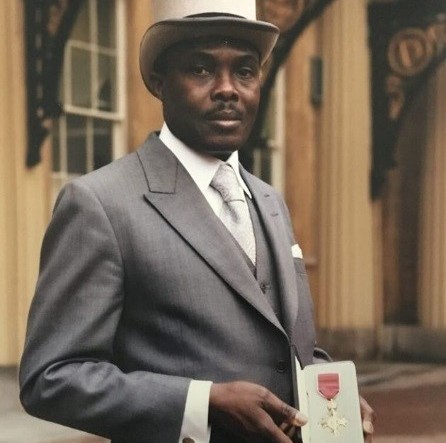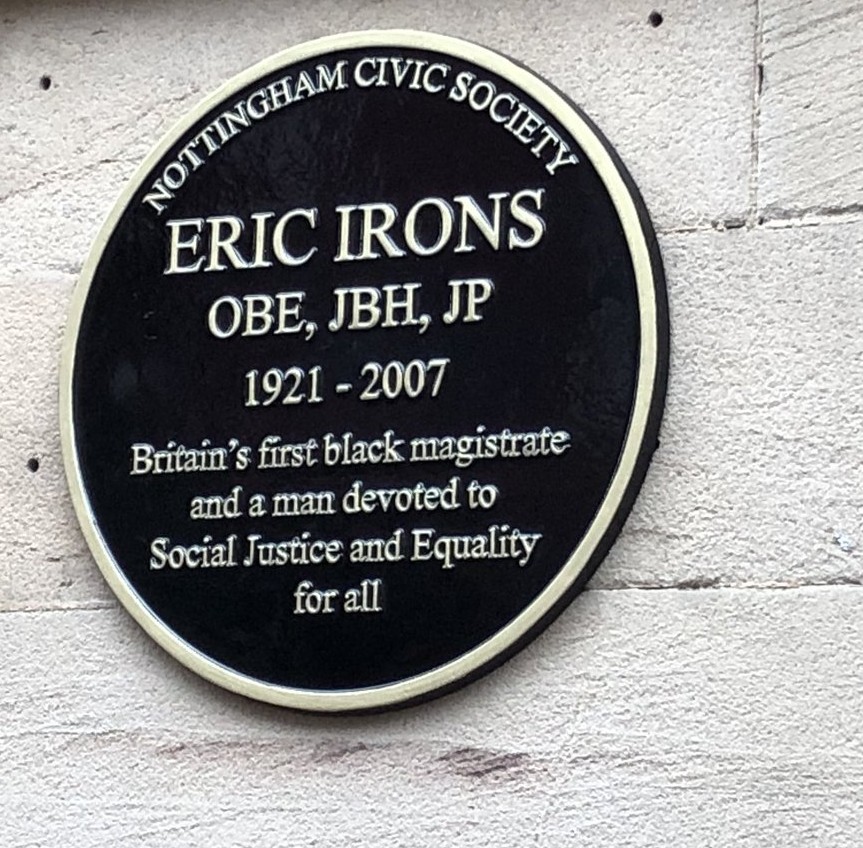Honouring Britain’s first black Magistrate
Posted in Latest News on 3 Oct 2019


Eric Irons OBE Britain’s first black Magistrate was commemorated this week in Nottingham with a blue plaque. It was erected outside the city’s National Justice Museum in memory of his life and achievements. This act not only celebrates the start of Black History Month (UK) this October but is a step in acknowledging changing attitudes in British society as well as signifying the need for representation of all ethnic backgrounds within the legal system and its processes.
Throughout his life, Irons campaigned for equal rights and social justice. Born in Jamaica in 1921, he served Britain in the Second World War as part of the Royal Air Force. Following his stint in the military, he settled in Nottingham with his family becoming an influential figure in the local community and a Justice of the Peace in 1962.
As a layperson within the legal world, Eric Irons heard his cases at Shire Hall courts, the site which now houses the National Justice Museum. He remained a Magistrate on the city benches for almost 30 years, retiring in 1991. Before this, he had helped to overturn the ban on black people working for a transport company within Nottingham and was pivotal in highlighting the problems that incited the 1958 race riots to Nottingham City Council in order to inspire social change. Irons also campaigned through church and community groups in addition to the Nottingham and District Trades Council for anti-discrimination measures and greater opportunities for those from ethnic minority backgrounds. His dedication was recognised after he was awarded an OBE in the late 1970s.
Achieving and maintaining a diverse workforce is a challenge that law firms are tackling with mixed success.
Within the legal industry, efforts have been made to improve diversity and representation of BAME professionals. According to the SRA’s 2017 data, Black lawyers make up 3% of the profession, rising by 1% since 2014 and reflecting those in employment in the UK. 21% of solicitors in England and Wales are of BAME (black, Asian or minority ethnic) background and 20% of partners in law firms are also BAME. However, at 8% it is also reported the largest firms of 50+ partners, have the lowest proportion of BAME partners.
On the recruitment of African and Afro-Caribbean candidates the managing partner of Leigh Day, Frances Swaine, has stated:
We’ve been very unsuccessful. This has led to a complete imbalance internally in comparison to the London population and that’s in a firm that is hugely diverse. So, we are using the Equality Act for a one-off positive action to try to address that balance
This is following the announcement last month that Leigh Day is looking for six students of Afro-Caribbean or African heritage to embark on a five-and-a-half-year apprentice programme in 2020, constituting an alternative route to the traditional University experience.
Moreover, Eversheds Sutherland has recently reported that it aims for 14% of its UK workforce to be of BAME backgrounds by 2022 with the present figure standing at 11.85%. Eversheds Sutherland also hopes that 10% of partners will be of BAME background by 2025, from the current figure of 5.3%.
Lee Ranson, Evershed Sutherland’s chief executive has said:
Recognising the challenges often faced by the BAME community we are setting targets, as we have in other areas, to bring accountability and transparency to the success of our programme to build a more ethnically diverse workforce
The ethnicity pay gap...
These initiatives have been announced in response to the reports of increasing ethnicity (and gender) pay gaps as reported by the UK’s leading law firms such as Allen & Overy (which overall ethnicity pay gap rose by 2.5%, from 21.6% to 23.1% last year), Slaughter and May (which reported an average ethnicity gap of 9.7%. On inclusion of partners, this average rises significantly to 51%, and 19.4% on a median basis), and Linklaters (which reported their mean ethnicity gap stood at 30.3% with the firm’s top quartile being 84% white).
Although Eric Irons died in 2007, his legacy lives on within the hearts and minds of his family, friends and within the East Midlands and wider BAME community. Irons is an inspiration to those leading the charge for greater representation and diversity within the legal industry proving that proactive efforts can help alter the fabric of society and incite tangible change for the better.
For more insight into the legal world, check out the latest copy of our Salary and Benefits Benchmarker here.
For our live positions take a look here.
Expertise
We partner the HR professionals, practice managers, partners and business leaders who are accountable for hiring talent into their business.
Latest insight
-
Criminal solicitors – Are they the unhappiest legal sector?
18 Jun 2025 -
What motivates Employment solicitors to leave their roles?
03 Jun 2025 -
How happy are Residential Conveyancers?
29 May 2025 -
Is the Private Client market a static one?
28 May 2025 -
What can law firms do to protect mental health?
20 May 2025